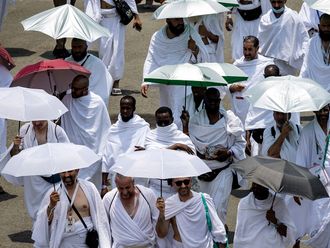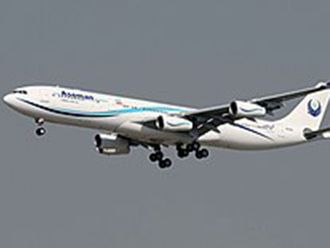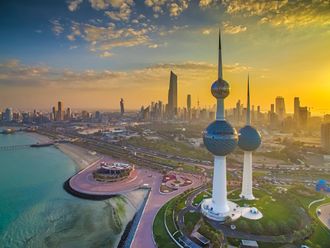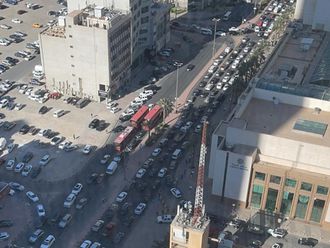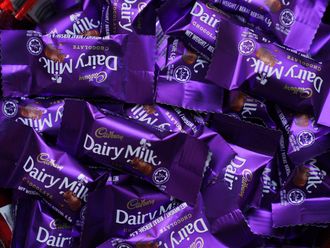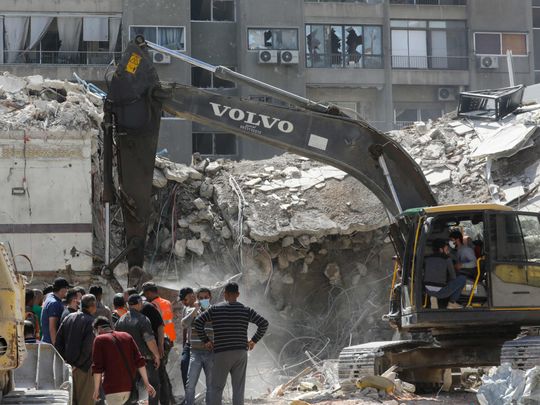
BEIRUT: A strike blamed on Israel has destroyed the consular section of Iran’s embassy in Syria’s capital Damascus, leaving at least 13 dead, including two senior Revolutionary Guards members, raising fears of a regional escalation.
What happened?
Syria’s defence ministry said that at around 5pm (1400 GMT) on Monday, Israel struck the embassy’s annex in the capital’s upscale Mazzeh district, also home to other diplomatic missions and UN offices.
The building, which housed the embassy’s consular section and the residence of ambassador Hossein Akbari, was completely destroyed.
Akbari told Iranian state TV that the attack “was carried out by F-35 fighter jets” which fired six missiles at the building.
Israel has carried out hundreds of raids on Iranian and pro-Iran targets in Syria since civil war started there 13 years ago.
Targets have included fighters from Lebanon’s Iran-backed Hezbollah movement.
Israel has stepped up its strikes since the war in Gaza began, but Monday’s was the first strike on an Iranian diplomatic mission in Syria.
Israel rarely comments on individual strikes and has not claimed responsibility for Monday’s attack.
Who was killed?
Iranian state media said 13 people were killed in the strike, including seven Revolutionary Guards and six Syrian nationals.
The Guards said the dead included two top commanders: Brigadier General Mohammad Reza Zahedi and Brigadier General Mohammad Hadi Haji Rahimi.
The Syrian Observatory for Human Rights war monitor said Zahedi served as Palestine, Syria and Lebanon leader of the Quds Force, the Guards’ foreign operations arm.
The Britain-based monitor said he was killed along with his deputy, his chief of staff and 11 other people, providing a slightly higher toll than Iran state media.
Emergency workers also recovered the body of a woman in her fifties, a Syrian civil defence official told AFP.
What’s the bigger picture?
Pro-Iranian groups from Lebanon to Iraq and Yemen have carried out attacks against Israeli targets and US troops since Palestinian militant group Hamas’s October 7 attack on Israel that triggered war.
Israel and Hezbollah have exchanged near-daily cross-border fire, with the Shiite movement and other pro-Iran groups saying their attacks are in support of ally Hamas and Palestinians in the Gaza Strip.
Israel has stepped up assassinations of Iranian and pro-Iran commanders in Lebanon and Syria, a move observers fear could spiral.
In December, an attack in Syria blamed on Israel killed Razi Moussavi, the most senior Quds Force commander to be killed outside Iran in nearly four years.
Iran, one of Syria’s top allies, has helped it claw back territory lost earlier in the civil war and says it only deploys military advisers at the invitation of Damascus.
Reactions?
Washington has told Tehran it was not involved in the raid on the consular annex, according to an American official quoted by US media outlet Axios.
Iran’s supreme leader Ayatollah Ali Khamenei warned that “Israel will be punished” for the strike, while President Ebrahim Raisi said the raid “will not go unanswered”.
Iran’s allies around the region and beyond offered support.
China condemned the strikes and Russia blamed Israel for an “unacceptable attack”.
Iraq’s foreign ministry condemned the attack as a “flagrant violation of international law” and warned of “more chaos and instability” in the region.
Hezbollah warned Israel would pay for the killings, which it said “will not pass without the enemy receiving punishment and revenge”.
Hamas described it as a “dangerous escalation”.



